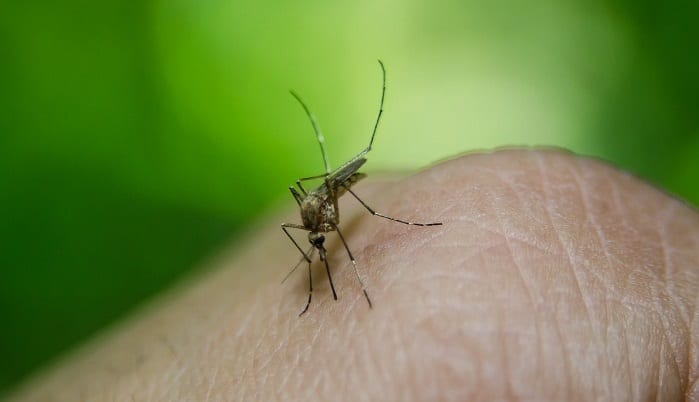Health Archives - Barbados Today
PAHO calls for intensified efforts to address leprosy, other neglected tropical diseases
6 months 2 weeks ago
Health, Regional
Health Archives - Barbados Today
Prostate cancer rates alarm as younger Barbadians at risk
6 months 2 weeks ago
Health, Local News
Health Archives - Barbados Today
Disabled community calls for ‘inclusive’ QEH services
6 months 2 weeks ago
Health, Local News
News Archives - Healthy Caribbean Coalition
“Sports Washed” Away: The Power of Big Soda, from the Olympics to Caribbean
8 months 4 days ago
News, Slider
News Archives - Healthy Caribbean Coalition
Feeding Communities in the Eye of the Storm
8 months 1 week ago
News, Slider, Webinars
News Archives - Healthy Caribbean Coalition
9th Caribbean Alcohol Reduction Day (CARD) 2024
8 months 2 weeks ago
Alcohol Advocacy, CARD, News, Slider, Webinars
Medical News, Health News Latest, Medical News Today - Medical Dialogues |
In Utero COVID-19 Exposure not associated with Neurodevelopmental Delays in Children:JAMA
9 months 2 weeks ago
Obstetrics and Gynaecology,Obstetrics and Gynaecology News,Top Medical News,Latest Medical News
Health Archives - Barbados Today
Northern parishes targeted for fogging
9 months 2 weeks ago
Health, Local News
Dense breasts can make it harder to spot cancer on mammogram - Jamaica Gleaner
- Dense breasts can make it harder to spot cancer on mammogram Jamaica Gleaner
- What are dense breasts? How this common condition complicates cancer detection National Geographic
- Dense breast patients at higher risk of cancer may need more screening. Who pays for it? NBC Miami
- New guidelines for mammograms WGN TV Chicago
- ARA Diagnostic Imaging shares how different breast densities factor into cancer risks KEYE TV CBS Austin
9 months 2 weeks ago
High cholesterol can be shown by six little-known signs in your legs - Surrey Live
- High cholesterol can be shown by six little-known signs in your legs Surrey Live
- Urgent warning as millions of Brits at risk of serious health problem with no symptoms Express
- Noticing These Bumps Around Your Eyes Could Reveal Heart Issues Yahoo News Canada
- Surprising signs of bad cholesterol are seen in legs at night The Times of India
- 3 high cholesterol warning signs in the eyes you should never ignore Leeds Live
9 months 2 weeks ago
Texas woman goes BLIND after common contact lens mistake led to parasites burrowing in her eyeball - Daily Mail
- Texas woman goes BLIND after common contact lens mistake led to parasites burrowing in her eyeball Daily Mail
- Woman goes blind after contact lens mistake meant parasites burrowed in her eye Metro.co.uk
9 months 2 weeks ago
Horrifying images show polar bears with painful ULCERS on their feet in the Arctic - and scientists say climat - Daily Mail
- Horrifying images show polar bears with painful ULCERS on their feet in the Arctic - and scientists say climat Daily Mail
- Arctic animals are battling more diseases in recent decades. Here’s why. The Washington Post
- Polar bears are being exposed to more pathogens as the climate warms Science News Magazine
- Polar bears are getting horrific injuries and huge 'ice balls' on their paws because of climate change, researchers say Livescience.com
- Polar Bear Are Getting Paw Injuries From the Arctic's Fluctuating Climate Technology Networks
9 months 2 weeks ago
46 people hospitalized with food poisoning in Maryland after sharing meal prepared by coworker - Yahoo! Voices
- 46 people hospitalized with food poisoning in Maryland after sharing meal prepared by coworker Yahoo! Voices
- 46 people who were taken to hospital for showing symptoms of food poisoning are OK, officials say WBAL TV Baltimore
- Forty-Six Patients Transported to the Hospital with Food Poisoning Symptoms Howard County Government
- Employee's homemade meal blamed for mass food poisoning at Maryland seafood distributor FOX 5 DC
- Mass Food Poisoning Leaves 46 Hospitalized, Employee’s Homemade Dish Causes ‘Mini Disaster Alert’ in Maryland PEOPLE
9 months 2 weeks ago
46 people hospitalized with food poisoning in Maryland after sharing meal prepared by co-worker - NBC News
- 46 people hospitalized with food poisoning in Maryland after sharing meal prepared by co-worker NBC News
- 46 people who were taken to hospital for showing symptoms of food poisoning are OK, officials say WBAL TV Baltimore
- Employee's homemade meal blamed for mass food poisoning at Maryland seafood distributor FOX 5 DC
- Forty-Six Patients Transported to the Hospital with Food Poisoning Symptoms Howard County Government
- Multiple people hospitalized following mass food poisoning incident in Howard County USA TODAY
9 months 3 weeks ago







